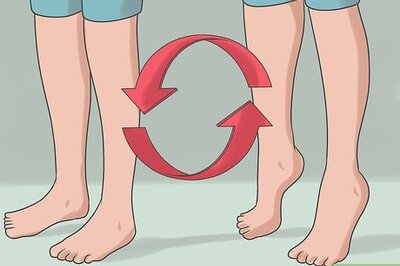
views
London: Women who are underpaid, overworked and doing manual jobs may age faster than those who are well paid and on non-manual jobs, says a study.
Tim Spector of St Thomas' Hospital in London and his colleagues estimated the cell ageing of 1,552 female twins.
The researchers measured the lengths of telomeres, a region of highly repetitive DNA at the end of a linear chromosome that functions as a disposable buffer.
Telomeres grow shorter each time a cell divides, so the shorter the telomeres in a cell, the more times it has divided and the more stress it is likely to have been under, reported the online edition of New Scientist.
They found that telomeres were on average 140 DNA base pairs shorter in manual workers than in non-manual workers of the same age.
Since around 20 base pairs of telomere DNA are lost on average each year, this makes the cells from the manual workers about seven years older.
In 17 pairs of twin sisters who married men at opposite ends of the social scale, their telomeres showed an average age difference of nine years, despite the women being genetically very similar, it said.
Spector suggests that low status might drive cellular ageing because such people are under greater psychological stress. This could have subtle metabolic effects, exposing their cells to more oxidative damage, he says.
Researchers expect to see the same effect in men. People from lower socio-economic groups are more likely to die earlier than people in non-manual jobs from heart attacks, strokes and cancer, the study said.
Unhealthy habits such as lack of exercise, excess weight, smoking and poor diet account for around a third of these deaths, he said.




















Comments
0 comment